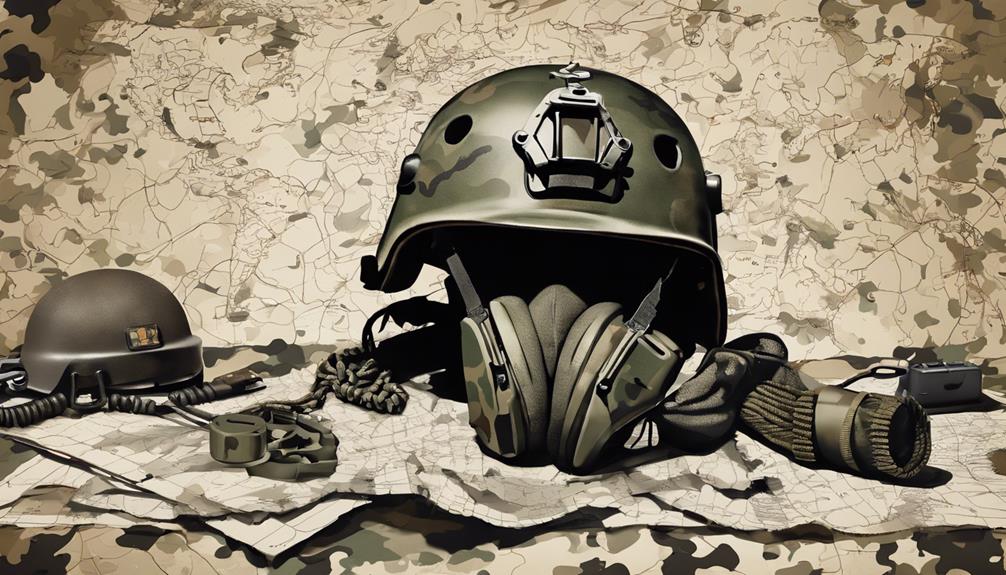You're about to uncover the fascinating world of military slang, a language shaped by historical events, cultural contexts, and social environments. Military slang terms like 'grunt' and 'FOB' reflect daily experiences and challenges faced by soldiers, offering insights into military culture and history. Each branch has its unique dialect, with the Army using terms like 'hooah' and the Navy featuring colloquialisms like 'deck ape'. As you explore further, you'll discover how military slang evolves over time, fostering camaraderie and signaling membership in a specific group, and how it's influenced by technological advancements, cultural exchange, and conflict experiences. Now, let's dig deeper into this complex, dynamic language.
Origins of Military Slang
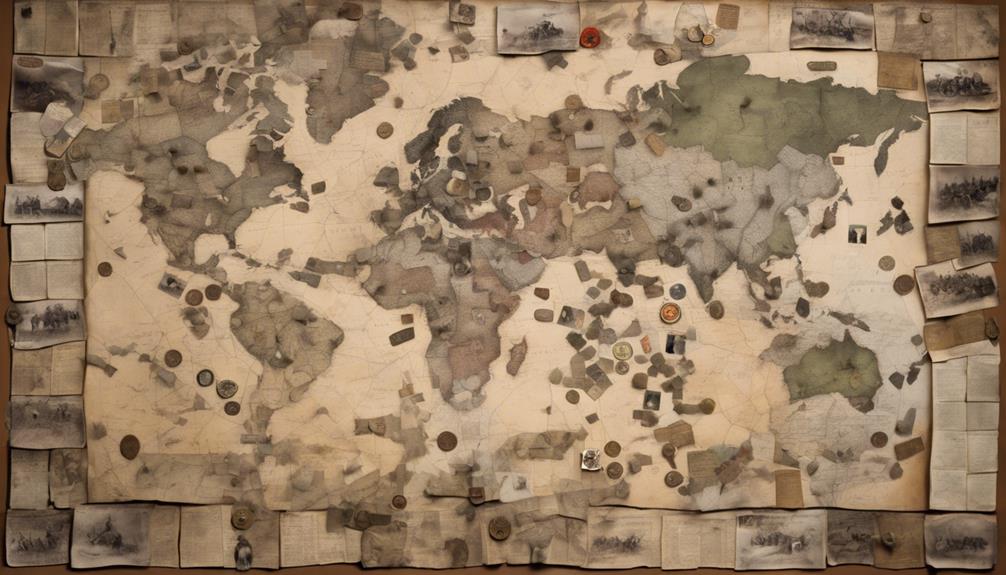
Tracing the etymology of military slang reveals that many terms originated from the cultural, historical, and social contexts in which they were used. As you explore the history of military slang, you'll discover that it's not just a collection of colloquialisms, but a reflection of the people, places, and events that shaped the military experience.
The linguistic evolution of military slang is deeply rooted in the historical roots of war and military culture. For instance, during World War I, soldiers used terms like 'trench fever' to describe the illness caused by lice infestations in the trenches. This term not only described a medical condition but also conveyed the harsh realities of war.
Similarly, during World War II, the term 'foxhole' emerged, which referred to a defensive hole dug by soldiers in combat zones. These terms, born out of necessity and experience, have become an integral part of military language.
Common Slang Terms Explained
As you explore the world of military slang, you'll encounter a plethora of terms that may seem unfamiliar, but are actually rooted in the daily experiences and challenges faced by soldiers on the front lines. Understanding the etymology of these slang terms can provide valuable insights into the culture and history of the military.
For instance, the term 'grunt' originated in the Vietnam War, referring to infantrymen who fought on the ground. This term has since been adopted across various branches, highlighting the shared experiences and camaraderie among soldiers.
Delving deeper into military lingo reveals a rich tapestry of colloquialisms, from 'FOB' (Forward Operating Base) to 'HOOAH' (a battle cry expressing enthusiasm or approval). Each term has its own unique story, reflecting the harsh realities, humor, and resilience of military life.
Slang in Different Branches
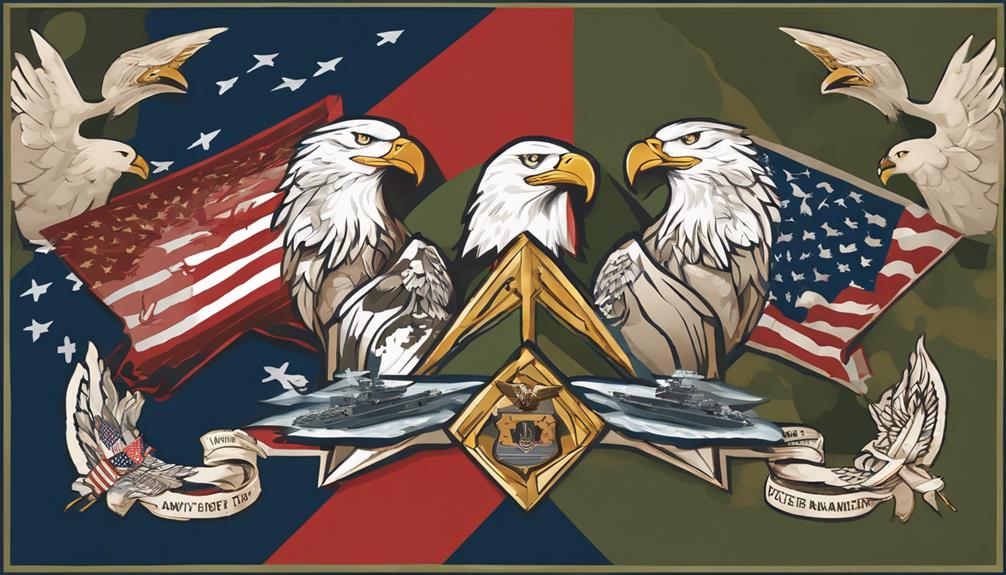
While exploring the diverse landscape of military slang, you'll discover that each branch has its unique dialect, shaped by distinct operational environments, histories, and cultural traditions.
The Army, for instance, has a rich lexicon of slang, with terms like 'hooah' (meaning 'yes' or 'agreement') and 'FOB' (Forward Operating Base).
In contrast, the Navy has its own distinct dialect, with colloquialisms like 'deck ape' (a sailor who works on the ship's deck) and 'scuttlebutt' (rumors or gossip).
The Air Force, meanwhile, has its own branch-specific dialect, with terms like 'flight line' (the area where aircraft are serviced and maintained) and 'ops tempo' (operational tempo, referring to the pace of military operations).
The Marine Corps, known for its esprit de corps, has a unique slang that reflects its proud heritage, with terms like 'ooh-rah' (a battle cry) and 'grunt' (an infantryman).
The Coast Guard, with its maritime focus, has its own set of colloquialisms, such as 'coastie' (a Coast Guardsman) and 'cutter' (a Coast Guard vessel).
Each branch's slang reflects its unique identity and operational environment, making military slang a fascinating aspect of military culture.
How Slang Evolves Over Time
Your exposure to military slang will reveal that it's not a static entity, but rather a dynamic language that adapts to the evolving needs of its users, reflecting changes in technology, tactics, and cultural norms.
As you explore further, you'll notice that military slang is constantly evolving, influenced by the historical context in which it's used.
Here are some key factors driving this language adaptation:
- Technological advancements: New equipment and tools lead to the creation of new slang terms, such as 'drone' to refer to unmanned aerial vehicles.
- Cultural exchange: Military personnel from diverse backgrounds bring their own slang and colloquialisms, influencing the language used in the military.
- Conflict and deployment: Slang emerges from the experiences of soldiers in combat zones, often as a way to cope with the stresses of war.
- Generational differences: Each generation of military personnel brings its own set of slang terms, shaped by their unique experiences and cultural references.
- Formal and informal settings: Military slang is used differently in formal and informal settings, with some terms reserved for casual conversations among comrades.
The Role of Slang in Camaraderie
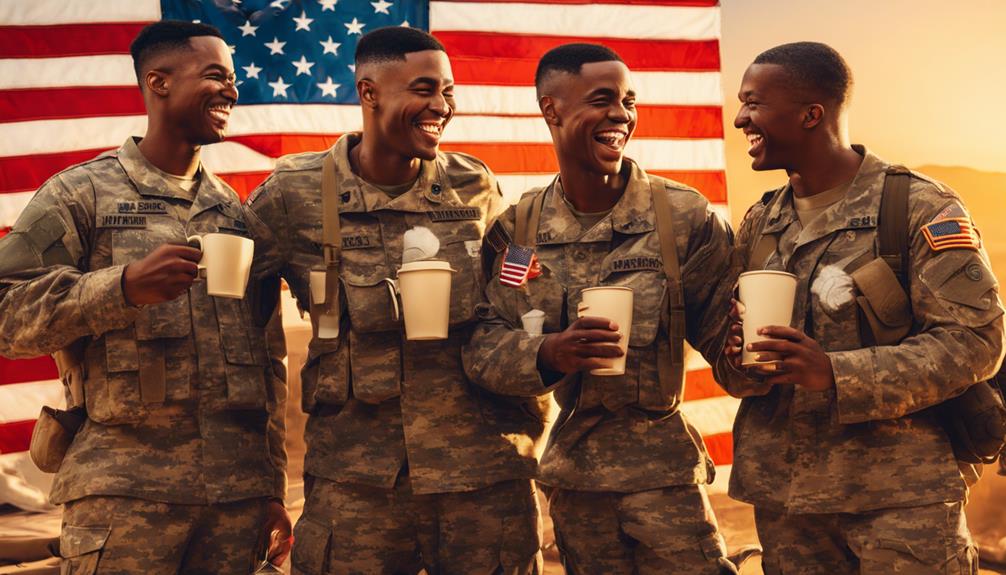
Military slang plays a significant role in fostering camaraderie among service members, as it creates a sense of shared identity and belonging that transcends rank and branch. You may have noticed that military slang is often used to create a sense of exclusivity, making you feel like you're part of a special group. This is because slang is a key bonding factor, as it requires a certain level of understanding and shared experience. When you use military slang, you're signaling to others that you're part of the same social identity.
Here's a breakdown of how military slang contributes to camaraderie:
| Aspect of Camaraderie | Role of Slang |
|---|---|
| Shared Identity | Creates a sense of belonging among service members |
| Social Identity | Signals membership in a specific group |
| Bonding Factor | Fosters a sense of exclusivity and shared experience |
| Communication | Enables quick and efficient communication in high-stress situations |
| Esprit de Corps | Reinforces a sense of pride and loyalty to the military unit |
Military Slang in Pop Culture
As you flip through television shows, movies, and books, you're likely to stumble upon military slang being used to add a touch of authenticity to characters and storylines. This phenomenon is more common than you think, and it's not just limited to war dramas or action flicks. Military slang has permeated various aspects of pop culture, influencing how we perceive and interact with the military.
Here are a few examples:
- Music Influence: Military slang has made its way into music, with genres like hip-hop and rap often incorporating military terminology to convey strength and resilience.
- Film Stereotypes: Movies often rely on military stereotypes, using slang to create a sense of realism and authenticity. Think 'Hooah!' or 'Oorah!' in war movies.
- Military slang is also used in literature, particularly in war novels and memoirs, to add depth and authenticity to the narrative.
- In video games, military slang is used to create a sense of immersion, with characters using slang to communicate and strategize.
- Even in advertising, military slang is used to evoke a sense of toughness and ruggedness, often to sell products like trucks or outdoor gear.
Deciphering Slang for Civilians
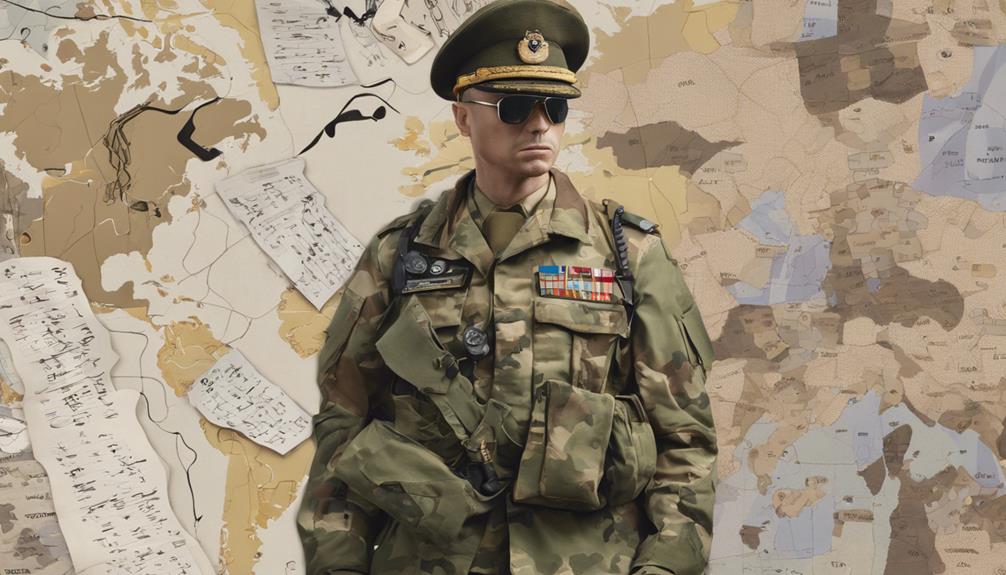
You've likely encountered military slang in your daily life, whether through music, movies, or conversations with veterans, leaving you wondering what phrases like 'HOOAH' or 'FUBAR' really mean.
As a civilian, you're not alone in feeling perplexed by the unique language used by the military community. Deciphering military slang can be a challenging task, especially when cultural barriers and language gaps exist between civilians and military personnel.
To bridge this gap, it's crucial to understand the context and history behind each phrase. For instance, 'HOOAH' is an expression of enthusiasm or agreement, while 'FUBAR' stands for 'fouled up beyond all recognition,' describing a situation that's gone awry.
By learning the origins and meanings of these phrases, you can better connect with veterans and military personnel, fostering stronger relationships and deeper understanding.
As you navigate the world of military slang, remember that it's not just about understanding individual phrases, but also about bridging cultural barriers and language gaps.
Frequently Asked Questions
Are Military Slang Terms Used Universally Across All Ranks?
You might assume that military slang terms are universally adopted across all ranks, but that's not entirely true.
In reality, rank dynamics play a significant role in the adoption and usage of slang. While some terms might be widely accepted, others are specific to certain ranks or units, creating a slang hierarchy.
As you explore the world of military slang, you'll find that usage varies greatly depending on one's position and experience within the organization.
Can Civilians Use Military Slang Without Offending Veterans?
When utilizing military slang without being part of the community, it can be seen as cultural appropriation, disrespecting the experiences and sacrifices of veterans.
You should take into account the social dynamics at play. Be mindful of your intentions and the potential offense you might cause.
Understanding the context and history behind these terms is crucial to avoid coming across as insensitive.
Do Military Slang Terms Have Official Dictionary Definitions?
When exploring the world of slang, you'll find that many terms, including military slang, often lack official dictionary definitions.
This isn't surprising, as linguistic evolution is an organic process, and lexical authentication can be a slow and subjective process.
However, with the rise of online resources and crowdsourced dictionaries, you'll discover that some military slang terms have gained formal recognition, reflecting the dynamic nature of language and its adaptability to cultural influences.
Is Military Slang Used Primarily for Secrecy or Camaraderie?
As you immerse yourself in the world of military slang, you'll find it's not just about secrecy. Coincidentally, it's often used to foster social bonding among troops.
Think of it as a code talk, where shared language creates a sense of belonging. While secrecy might be a byproduct, camaraderie is a primary driver.
This unique lingo brings soldiers together, creating a strong bond that transcends ranks and units. It's a clever way to build trust, and it's not just about hiding information from the enemy.
Were Military Slang Terms Used in Ancient Armies?
You explore the history of ancient armies, wondering if military slang terms were used.
In ancient Greece, the phalanx formation relied on precise communication, and it's likely that soldiers used colloquialisms to quickly convey tactics.
Roman Legionnaires, too, likely employed slang to maintain unity and intimidate enemies.
While there's no direct evidence, it's plausible that ancient armies used informal language to foster camaraderie and quicken communication on the battlefield.
Conclusion
You've explored the fascinating world of military slang, and it's crucial to recognize that this linguistic phenomenon is more than just a quirky aspect of military culture.
While some might argue that slang is a barrier to effective communication, it's important to acknowledge that it serves as a powerful tool for fostering camaraderie and group identity among service members.
By embracing military slang, we can gain a deeper understanding of the unique experiences and values that shape the lives of those who serve.

